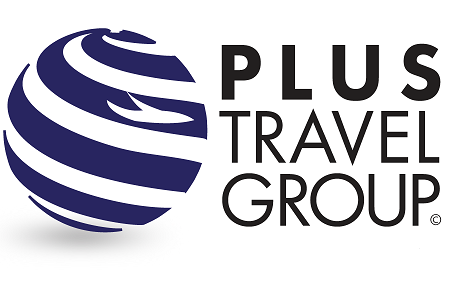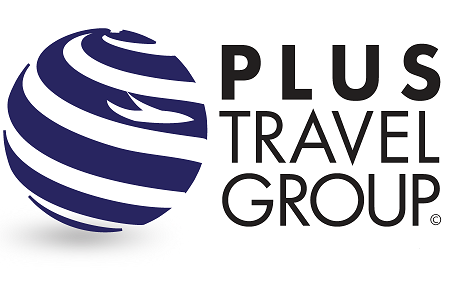Today’s traveller has high expectations – they want it now, they expect speed, authenticity, security and above all else, a seamless experience. To deliver on these expectations’ technology is a requirement for all travel companies.
Travel no longer only begins with a trip down to their local travel agency, as bookings are now also carried out online and through mobile devices. Before a traveller even sits down in front of their computer or with their travel agent, they’ve already done extensive research either through a social media platform or a search engine.
And all of this happens before the trip has started. During the actual travel part of travel, companies are implementing technology to make every part of their travellers experience smoother, safer, more reliable.
Technology continues to change the way companies interact with their customers. As travel companies continue to work hard to meet the needs of their customers and their evolving expectations – technology provides them with the opportunity to take operational efficiencies to the next level.
Here are a few ways that technology trends are going to shape those interactions.
Voice Technology
Voice Search and voice-enabled assistants are emerging in the world of travel as a great way to get help on the go. Our voices will always be the most convenient and effective way to communicate and the challenge is ensuring that these voice-driven technologies are smart enough to understand and engage with the quirks of natural language.
With that in mind, it’s no surprise that more and more hotels have started experimenting with voice-activated devices. The ease and convenience of voice assistants have made them a welcomed addition to guest bedrooms for many leading hotel brands. Rather than phoning down to speak to a receptionist, many guests can now simply connect to an in-room voice assistant and state their request. Whether it’s for local restaurant recommendations or what time breakfast is served, guests can personalize their experience without even leaving their room.
International hotel chain Marriott has partnered with Amazon to provide Alexa voice assistant devices in many rooms. Improvements in guest experience and ease of translation were the main reasons to adopt the technology, although time and cost savings from guest queries is also a benefit. But it’s not just information that guests can obtain through voice technology. Marriott has also developed a concept hotel room that can be completely controlled by voice commands, from the air conditioning to the changing the TV channel.
Augmented and Virtual Reality (AR and VR)
Currently, AR and VR are mainly used for marketing purposes. Because travel choices are driven by our perceptions and are always visually orientated, immersive VR and AR content marketing is the most obvious application. Showing off hotel rooms in advance, taking a virtual walk through a luxury resort before booking or even exploring whole national parks from your own home are just some the experiences.
Augmented reality, when combined with wearables, could have many more practical applications for travellers. In some ways, Google’s translation of the text is already an example of that. It’s easy to imagine smartphones becoming a platform for more of these kinds of uses. Live translation is one, but what about augmented directions, opening times and closing times overlaid onto your view of the world as you walk past a restaurant, or tourist information that pops up on your smart glasses as you wander through a historical site?
Artificial Intelligence (AI)
AI is behind many evolving technologies and innovations in the travel and tourism sector.
We can divide AI into a few categories to get a better idea of how it’s being applied in travel. The first is machine learning, which can be applied to all sorts of things to automate tedious processes and speed up bookings, check-ins, customer service and more.
Robotics and virtual assistants are another application of AI. Although Robot concierge and check-in assistants are a little strange and quite impersonal, they could represent a potential future.
There are 80 hotels in Canada, U.S., Japan, Singapore and France using robot delivery for their room service requirements. Hotel Monville in Montreal QC uses this technology. Their robot uses the elevator by itself, goes to the guest room’s door and, when it senses that the door has been opened, it will unlock its built-in secure bin, so the guest can take out their order.
Internet of Things (IoT)
Internet of Things is a phrase used to describe a world connected devices, where sensors, computers and systems are increasingly integrated, operating with minimal supervision and generally making things better and more efficient.
IoT is about connecting devices to networks in a way that previously hasn’t been possible. One great example is Lufthansa’s smart baggage tracking solution. With a few connected tags, passengers can track their baggage via a link found on their mobile boarding pass in the Lufthansa app.
All the stress and confusion that comes with lost luggage is eliminated.
Wearable Devices
Travel is one of the industries that is expected to greatly benefit from wearable technology. Wearable technology is being designed with consumer convenience in mind and its simple goal is to enhance and improve the overall experience of the traveller.
RFID tags are used by Disney allowing customers to use these connected bands on theme park infrastructure, hotel rooms and as payment devices. This provides Disney with an immense amount of data enabling them to make smarter decisions and symptomatically leading to shorter wait times.
Smart headphones, if paired with voice assistants can offer real-time translation which would completely change the travel experience for travellers to international destinations.
Wi-Fi Connectivity
Wi-Fi is a must for travellers as it allows them to connect to other useful technologies, from voice searching for nearby attractions and restaurants, to turn by turn directions, to language translation.
Although not the most advanced or newest technology – it’s a requirement of almost all travellers.
The travel industry is one where interaction with the consumer is becoming more critical, and technological advances are letting corporations get closer and know their customers a bit better.
We have the tools. Now the question is: what are we going to do with them?


